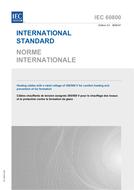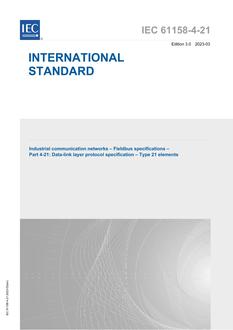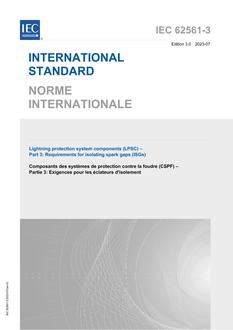
Click here to purchase
IEC 60800:2009 is applicable to, and specifies requirements for, resistive heating cables for low temperature applications such as comfort heating and the prevention of ice formation. These cables and cable sets may comprise either factory fabricated or field (work-site) assembled units, and which are heating cables assembled in accordance with manufacturer’s instructions. Bare conductors and protected conductors to be supplied at voltages equal to, or less than, 50 V are excluded from the scope of this standard. Typical applications include, but are not limited to
– surface heating installed in or under surfaces
– direct and storage heating
– snow melting and frost protection of roofs, gutters, pipes, etc.
Heating cables for industrial and commercial applications are specified in the IEC 62395 series as are mineral insulated heating cables. Applications in which the operating sheath temperature exceeds 100 °C are outside the scope of this standard. The object of this standard is to ensure that electrical resistance heating cables operate safely under their normal defined conditions of use. This is achieved by:
– employing heating cables of the appropriate construction that meet the test criteria detailed in this standard
– including, for cables with an electrical protective component, a metallic braid, concentric wires or sheath, or other suitable electrically conductive material for protective purposes in case of fault
– ensuring that the cables operate at safe temperatures with respect to the materials used in the construction of the cables and their installations according to national regulations.
The significant technical changes with respect to the previous edition are as follows
– introduction of heating cable sets
– testing of heating cable sets, including the integrated cold-lead, cold-lead splice and end-termination in twin and multicore cable sets, in addition to the heating cable
– introduction of requirements for installation instructions
– reduction to two, instead of three, mechanical classes, one for cables intended for installation with a low risk of mechanical damage (M1) and one for cables intended for installation with a higher risk of mechanical damage (M2)
– elimination of reference to specific materials to be used as insulation and sheath
– introduction of routine and sample tests.
Product Details
- Edition:
- 3.0
- Published:
- 07/23/2009
- Number of Pages:
- 58
- File Size:
- 1 file , 1 MB


